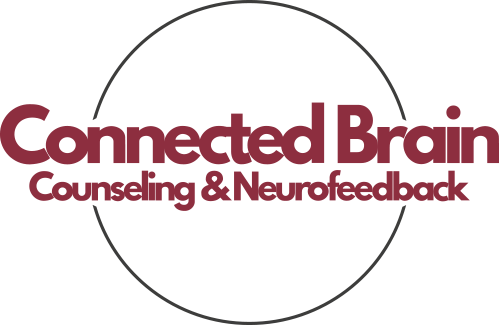Trauma bonds are a type of psychological connection between two people that can have a profound impact on an individual’s life. It is a complex issue, with various stages of trauma bonding that can be difficult to navigate. Understanding the stages of trauma bonding can be the first step in breaking free from it, and finding healthier connections. Connected Brain Counseling in Denver specializes in therapy services to help those affected by trauma bonds, offering alternatives to medication.
Defining Trauma Bonding
Trauma bonding is a complex psychological phenomenon that occurs when a strong emotional attachment forms between two people in a highly stressful or traumatic situation. It is often seen in abusive relationships, where the victim develops a deep bond with their abuser. This bond can be extremely difficult to break, as it becomes intertwined with feelings of fear, love, and dependence.
Unlike healthy bonds, trauma bonds are built on a foundation of fear and control. The victim becomes emotionally dependent on the abuser, finding solace in the intermittent moments of kindness or validation that are often followed by episodes of abuse. This creates a cycle of trauma and reward, further reinforcing the bond.
Trauma bonding can occur in a variety of relationships, not just romantic ones. It can happen between family members, friends, or even with authority figures. The key component is the presence of an abusive or traumatic experience that creates a heightened emotional connection.
It is important to note that trauma bonding is not the same as Stockholm Syndrome, although there are similarities. Stockholm Syndrome refers specifically to the development of positive feelings towards a captor or abuser as a survival mechanism, while trauma bonding is a broader term that encompasses a range of abusive relationships.
Trauma bonding can have profound and lasting effects on a person’s mental and emotional well-being. It can contribute to symptoms of post-traumatic stress disorder (PTSD), depression, anxiety, and low self-esteem. Breaking free from a trauma bond is challenging, but it is possible with the right support and resources.
The Stages of Trauma Bonding
Trauma bonding is a complex psychological phenomenon that unfolds in stages, each contributing to the intensity and complexity of the bond. By understanding these stages, individuals can gain insight into their own experiences and take the first step towards breaking free from the cycle.
The first stage of trauma bonding is idealization. In this stage, the abuser presents themselves as perfect and charming, showering the victim with love, affection, and attention. They create an illusion of happiness and security, which can be intoxicating for someone who has experienced trauma. This stage serves to hook the victim emotionally, making them crave more of the abuser’s affection.
Next comes devaluation, the second stage of trauma bonding. During this phase, the abuser starts to reveal their true colors. They become critical, demeaning, and emotionally or physically abusive. This sudden shift in behavior can be shocking and disorienting for the victim, who may struggle to reconcile the person they once idealized with the abusive reality before them.
The third stage is dependency. At this point, the victim becomes emotionally dependent on the abuser. The intermittent moments of kindness or validation that the abuser offers create a glimmer of hope and keep the victim trapped in the cycle. The fear of losing these rare moments of validation can outweigh the fear of abuse, leading to a deep-seated dependency on the abuser.
The final stage is traumatic bonding. By this point, the victim’s emotions are deeply entwined with the abuser. They may feel a mix of fear, love, and loyalty, unable to separate their own identity from the relationship. This stage is marked by a strong psychological connection that makes it incredibly difficult for the victim to break free.
Connected Brain Counseling in Denver specializes in providing therapy services for trauma bonding. They offer a safe and supportive environment for individuals to explore their experiences, process their emotions, and develop healthy coping mechanisms. With their expertise and guidance, individuals can navigate the stages of trauma bonding and find the strength to break free and reclaim their lives.
Impact of Trauma Bonding on Your Life
Trauma bonding can have a profound impact on every aspect of your life, affecting your mental, emotional, and even physical well-being. The intense psychological connection formed in trauma bonding can leave lasting scars and shape your perceptions, beliefs, and behaviors.
One of the most significant impacts of trauma bonding is the development of post-traumatic stress disorder (PTSD). The traumatic experiences and the constant cycle of abuse and reward can leave you in a constant state of hyper arousal and anxiety. Flashbacks, nightmares, and intrusive thoughts can become a daily struggle, making it difficult to function in your everyday life.
Trauma bonding can also lead to low self-esteem and a distorted sense of self. The constant emotional manipulation and gaslighting from the abuser can make you question your own worth, capabilities, and even sanity. You may find yourself constantly seeking validation and approval from others, and feeling unable to trust your own instincts and judgment.
Additionally, trauma bonding can impact your relationships and social interactions. The deep emotional connection with the abuser may make it challenging to establish healthy boundaries or recognize red flags in other relationships. You may find yourself gravitating towards abusive or toxic dynamics, repeating the same patterns and cycles of trauma bonding.
Alternatives to Medication: Therapy for Healing Trauma Bonds
Trauma bonding is a complex and deeply ingrained psychological phenomenon that can have lasting effects on a person’s mental and emotional well-being. Breaking free from a trauma bond is challenging, but with the right support and resources, it is possible to heal and find healthier connections. While medication can be a helpful tool in managing symptoms, therapy offers an alternative approach to healing trauma bonds.
Therapy provides a safe and supportive environment for individuals to explore their experiences, process their emotions, and develop healthy coping mechanisms. A skilled therapist, such as those at Connected Brain Counseling in Denver, specializes in treating trauma bonding and can guide individuals through the stages of trauma bonding to help them break free from the cycle.
In therapy, individuals can gain insight into the dynamics of their trauma bond, recognize the patterns and signs of abuse, and learn how to establish healthy boundaries. Therapists can also help individuals address underlying wounds and develop strategies for rebuilding self-esteem, reestablishing a sense of self, and cultivating healthier relationships.
Furthermore, therapy can be a vital tool in managing symptoms of post-traumatic stress disorder (PTSD) that often accompany trauma bonding. Therapists can help individuals develop strategies to cope with anxiety, flashbacks, nightmares, and other symptoms, allowing them to regain control of their lives.
At Connected Brain Counseling, our therapists understand the complexity of trauma bonding and are dedicated to providing personalized and compassionate care. Through individual therapy sessions, support groups, and other resources, we empower individuals to break free from trauma bonds, heal from their past, and build a brighter future.
Remember, you don’t have to face trauma bonding alone. Reach out for help and support, and take the first step towards healing. Therapy is a powerful tool that can help you break free from the chains of trauma bonding and reclaim your life.
Connected Brain Counseling: Specializing in Treating and Understanding the Stages of Trauma Bonding
Connected Brain Counseling in Denver is dedicated to providing specialized therapy services for individuals affected by trauma bonding. With a team of skilled and compassionate therapists, they offer a safe and supportive environment for individuals to explore their experiences, process their emotions, and develop healthy coping mechanisms.
At Connected Brain Counseling, their therapists understand the complexity and lasting impact of trauma bonding. They recognize that breaking free from a trauma bond is not easy, but they are here to support individuals every step of the way. Through individual therapy sessions, support groups, and other resources, they empower individuals to heal from trauma bonds and build healthier connections.
The therapists at Connected Brain Counseling are experts in trauma bonding and have a deep understanding of the stages of trauma bonding involved. They can help individuals recognize the signs and patterns of abuse, establish healthy boundaries, and address underlying wounds. Through personalized and compassionate care, they guide individuals in breaking free from the cycle and reclaiming their lives.





